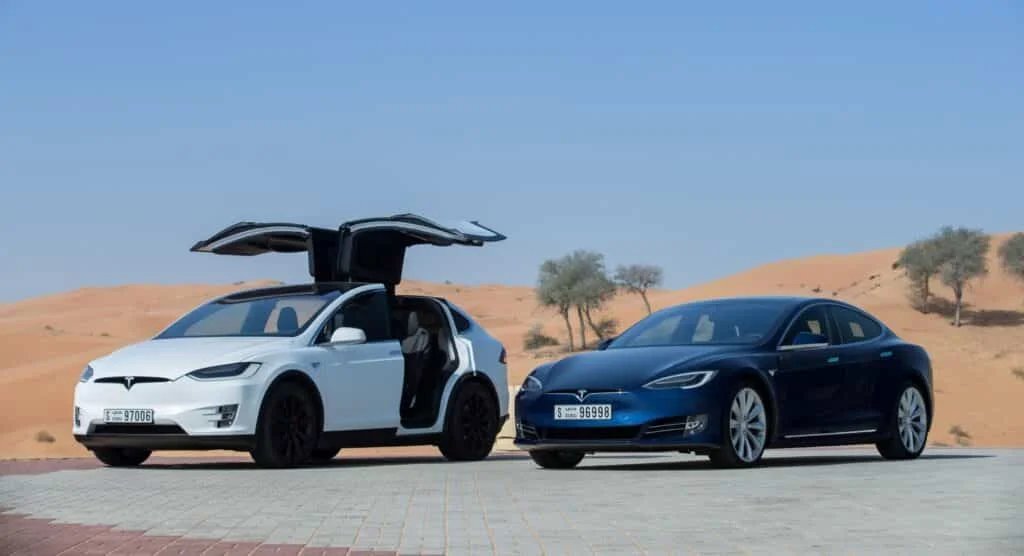The UAE’s love for electric cars is more than a passing trend. It is a reflection of the nation’s broader vision for sustainability, innovation, and global leadership in green technology. From government incentives to ambitious infrastructure projects, the UAE has made significant strides in embracing electric vehicles (EVs). This is why the UAE Loves Electric Cars.
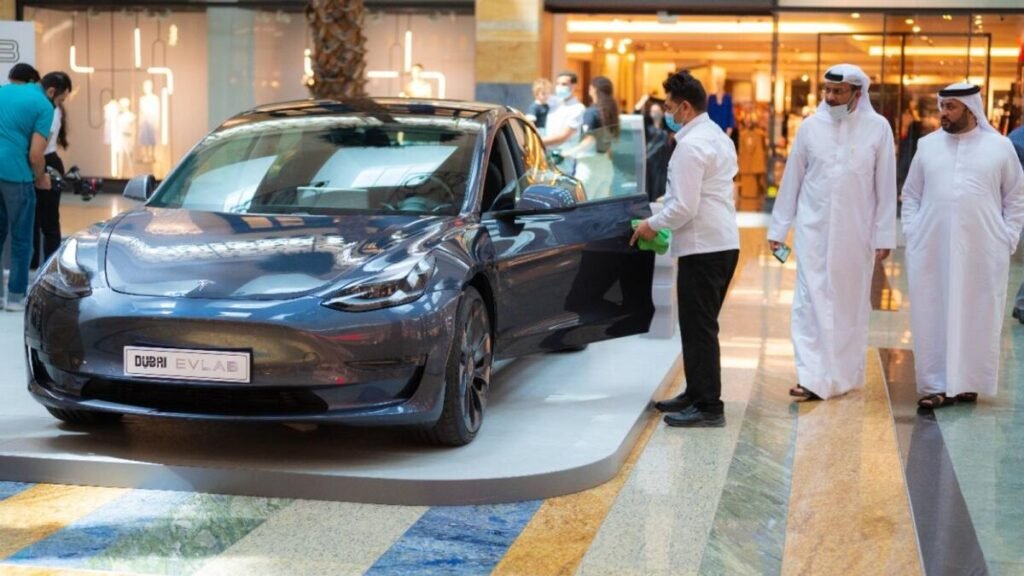
Environmental Commitment and Vision 2021
The UAE has long positioned itself as a regional leader in sustainability. Central to this ambition was UAE Vision 2021, which prioritised reducing carbon emissions and promoting renewable energy. Electric vehicles play a major role in this mission by reducing reliance on fossil fuels and supporting a cleaner transport sector.
This vision has evolved through initiatives such as the Dubai Clean Energy Strategy 2050, which sets a target for 75% of Dubai’s energy to come from clean sources by 2050. EV adoption is seen as an essential building block in achieving this ambitious goal.
Saeed Mohammed Al Tayer, CEO of DEWA, once said, “The Green Charger initiative reflects Dubai’s leadership in building a sustainable future and supporting clean transportation.” Quotes like this emphasise that EVs are not just technology, but part of the UAE’s national identity.
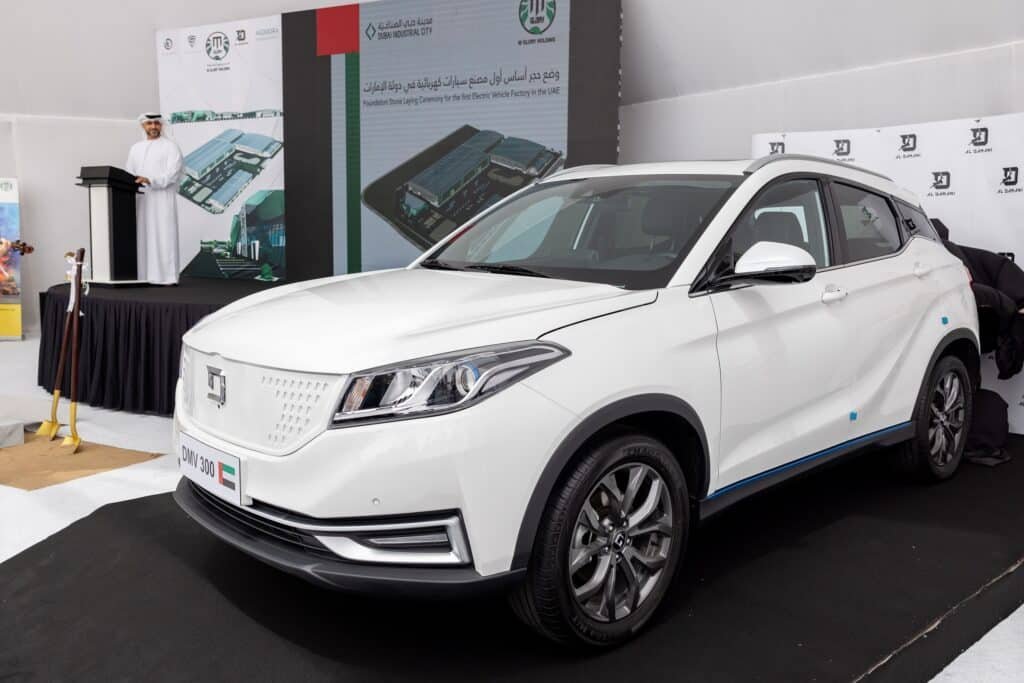
Historical Milestones
The UAE’s journey toward EV adoption includes several key milestones:
- 2015: Dubai Electricity and Water Authority (DEWA) launched the first public charging stations for EVs.
- 2017: Introduction of the Green Charger initiative, offering free public charging.
- 2018: Over 200 charging stations installed across Dubai.
- 2020: DEWA expanded to 300+ charging stations across the emirate.
- 2021: UAE Vision 2021 placed sustainable infrastructure firmly in the spotlight.
These milestones show a steady progression, transforming EVs from niche products into mainstream transport options for UAE residents. At Expo 2020 Dubai, the Sustainability Pavilion showcased electric mobility as one of the cornerstones of the future, underlining how central EVs have become to the national narrative.
READ MORE: How Long Should You Stay in the UAE?
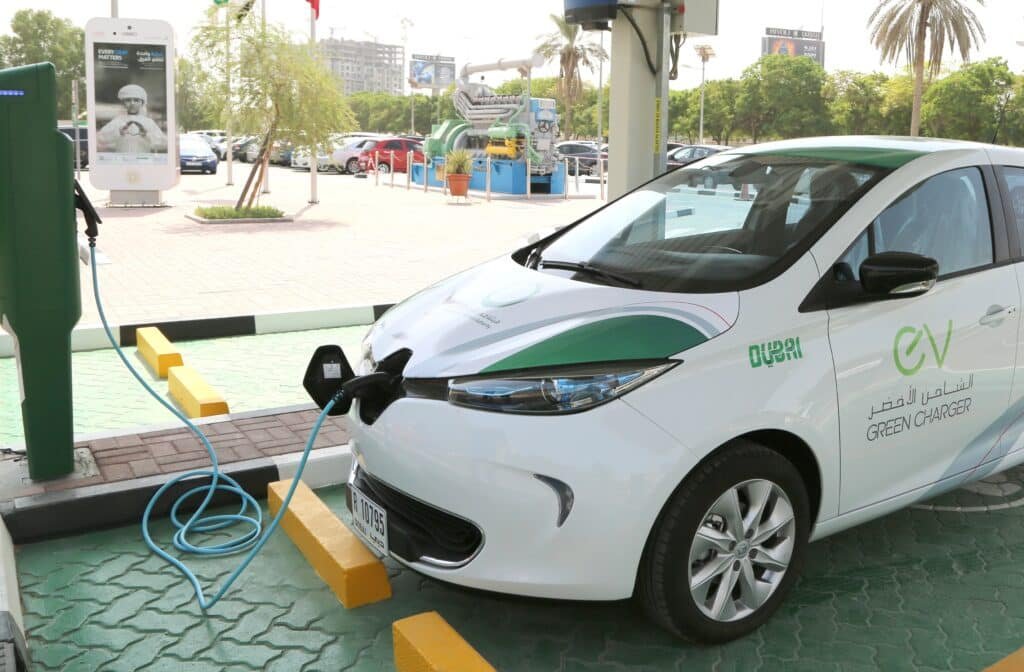
Government Incentives
One of the driving factors behind EV adoption in the UAE is government support. The incentives offered include:
- Exemption from registration fees and toll charges.
- Free parking in designated areas.
- Reduced electricity tariffs for EV charging.
- A 25% discount on registration fees for EVs in Dubai through the Roads and Transport Authority (RTA).
The RTA has even described EV ownership as “a choice that aligns residents with Dubai’s long-term vision for sustainability.” This type of public endorsement reflects how policy and culture work hand in hand.These incentives make owning an electric vehicle more attractive and financially viable for residents.
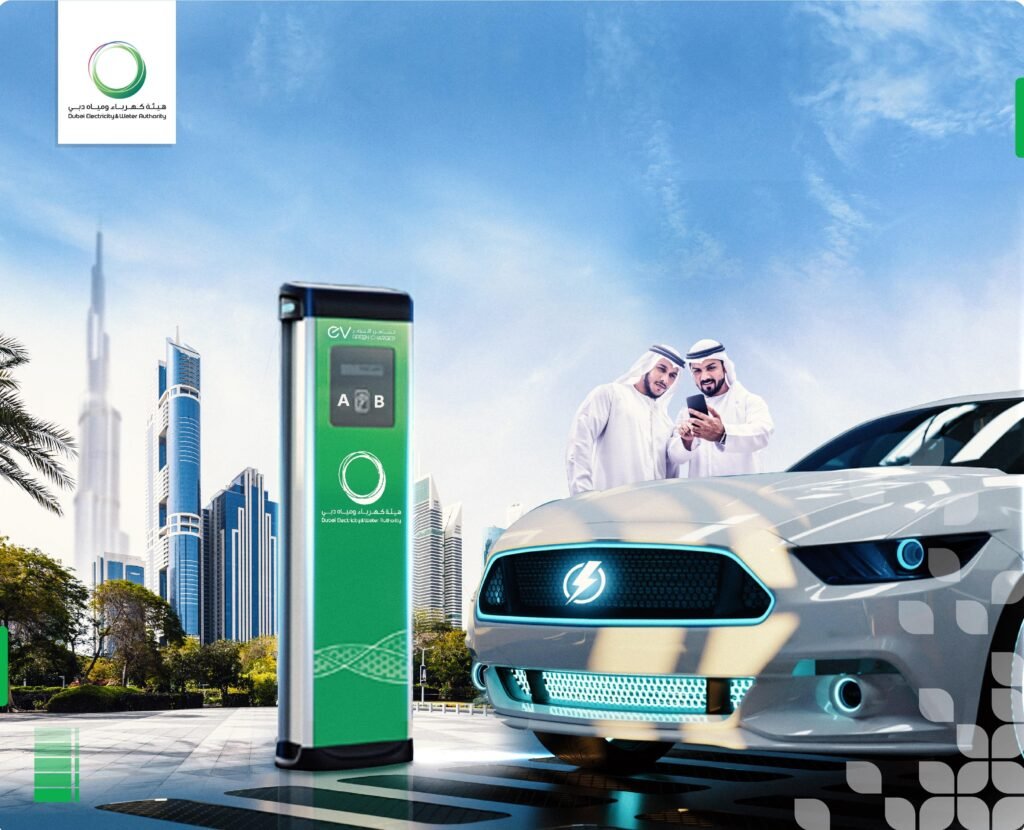
Technological Advancements and Infrastructure
The UAE has invested heavily in EV infrastructure. DEWA’s growing network of charging stations makes it convenient for EV drivers, while the integration of smart grid technology ensures efficient energy management. This prevents strain on the electricity grid while supporting sustainable growth.
Advances in EV battery technology also support adoption. Modern electric cars offer longer driving ranges and faster charging times, addressing early consumer concerns about practicality. Driving through Dubai in an EV now feels effortless, as the infrastructure is ready to support seamless travel between emirates.
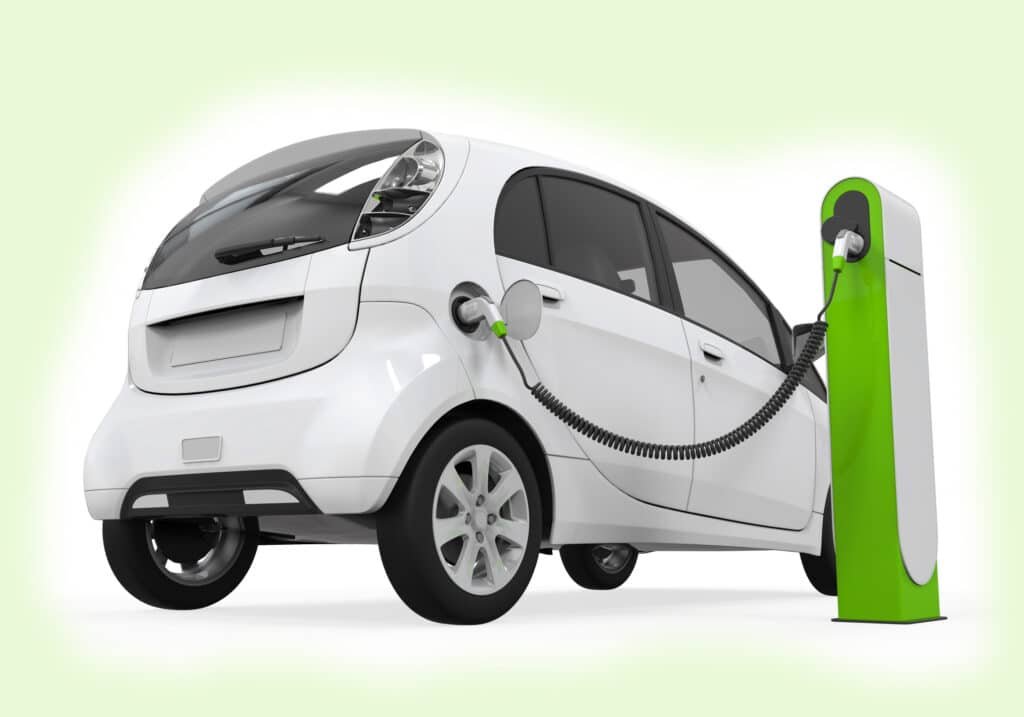
Economic and Social Impact
The impact of electric vehicles extends beyond the environment. Economically, EV adoption creates opportunities for green jobs, investment in battery production, and expansion of charging infrastructure. These sectors support the UAE’s vision of economic diversification beyond oil.
Socially, the rise of EVs is fostering a culture of sustainability. As residents adopt electric mobility, awareness grows about climate change and the need for responsible consumption. This cultural shift is key to embedding sustainability across every sector of UAE society.
At events like GITEX Technology Week, EV showcases highlight the UAE’s embrace of innovation, merging technology and sustainability in front of a global audience.
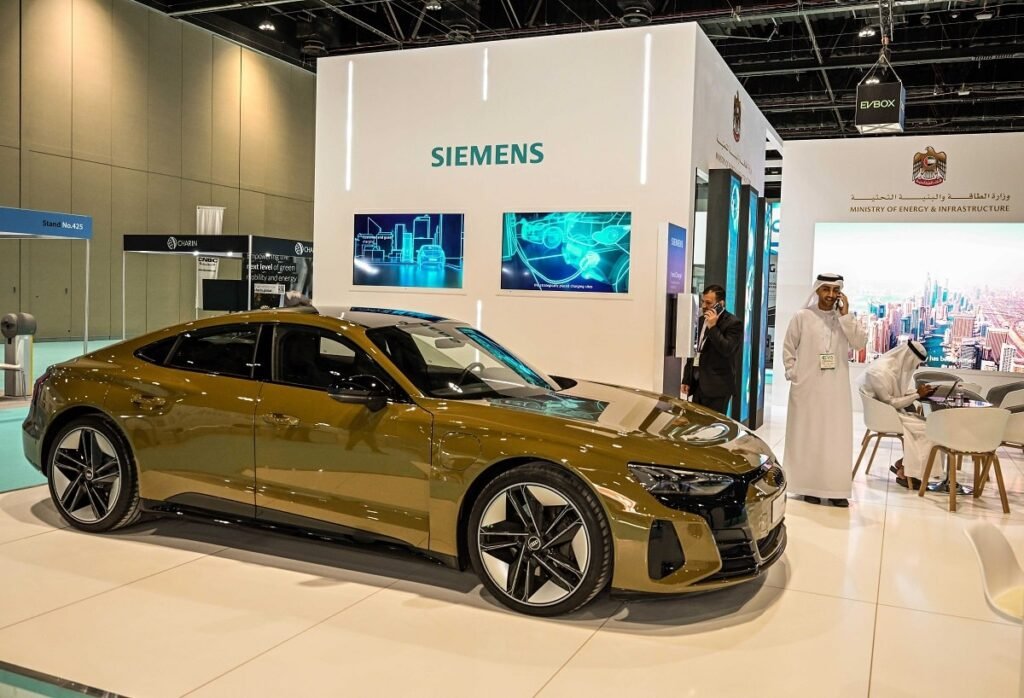
Challenges and Future Prospects
Despite impressive progress, challenges remain. The high upfront cost of EVs compared to traditional vehicles still deters some buyers. Range anxiety — concerns about charging in remote areas — also persists. However, these challenges are gradually being addressed by global price reductions, improved technology, and expanded charging networks.
Looking ahead, the UAE’s Energy Strategy 2050 and commitment to carbon neutrality will further accelerate EV adoption. With continuous innovation and supportive policies, EVs are poised to become the dominant form of mobility in the UAE. Arguably, this push towards electric mobility is one of the country’s boldest sustainability initiatives.
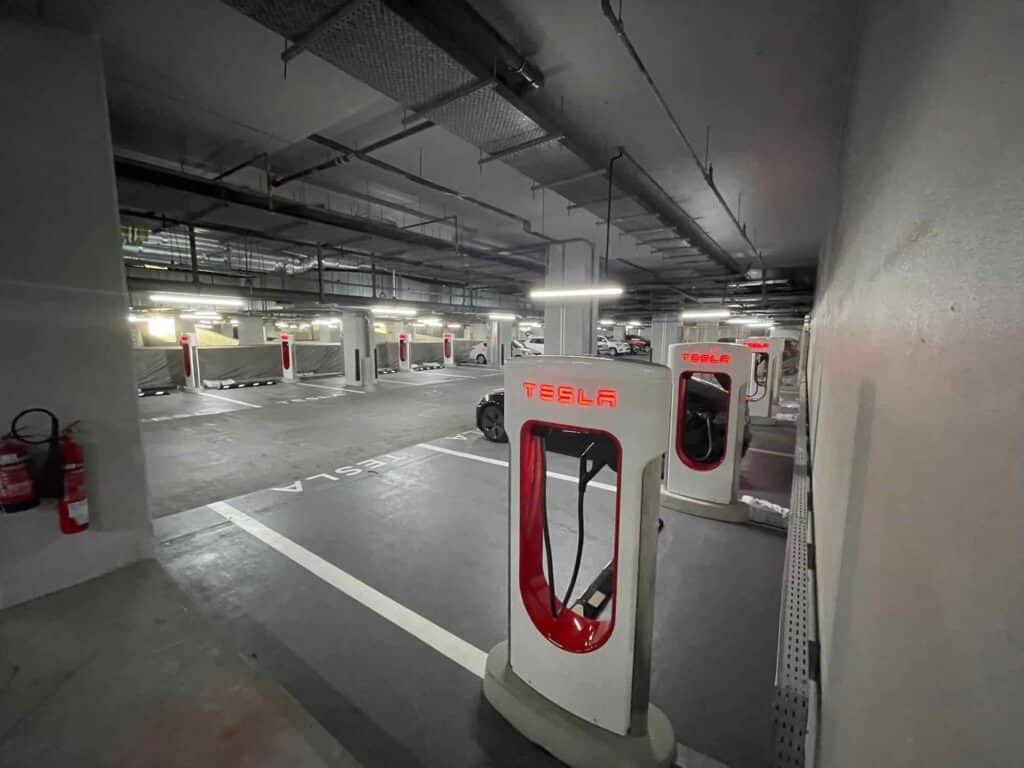
Why the UAE Loves Electric Cars
In the end, the UAE’s embrace of electric cars is about more than convenience or cost. It represents the country’s determination to lead in sustainability, adopt cutting-edge technology, and create a better future. From visionary policies to cultural change, electric cars symbolise the UAE’s journey toward a greener tomorrow.



